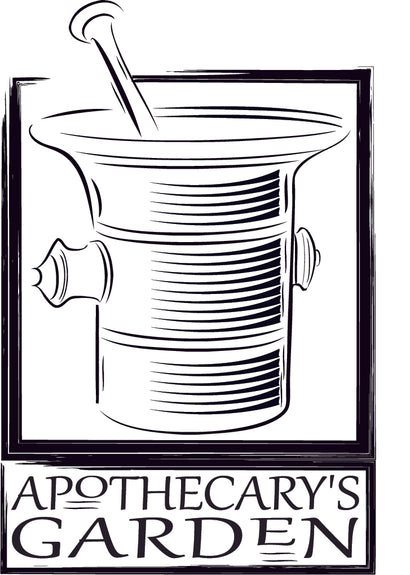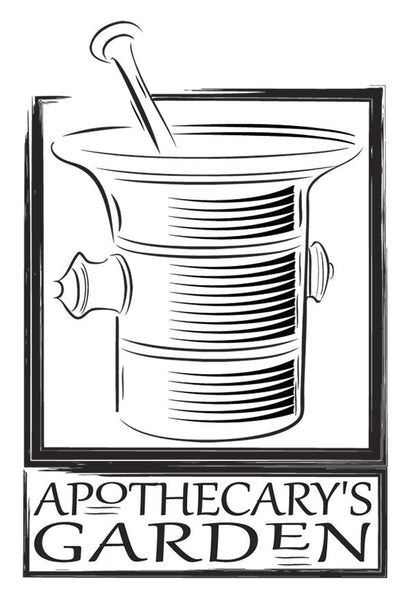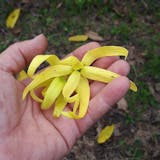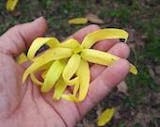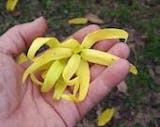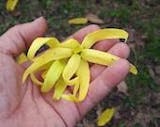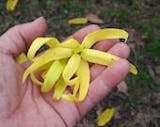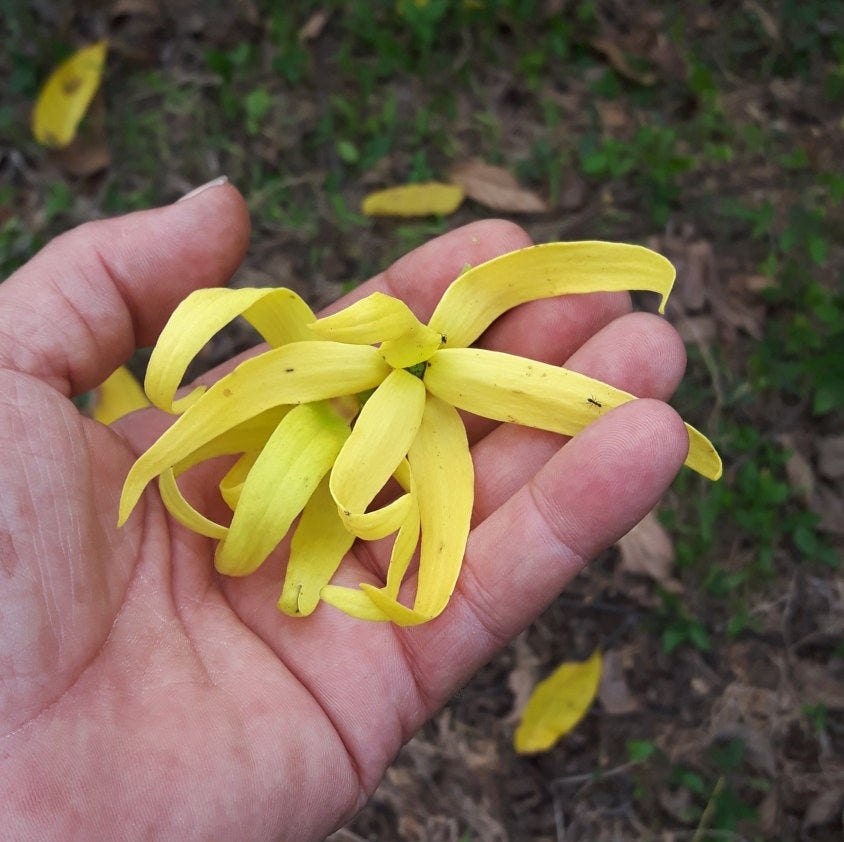
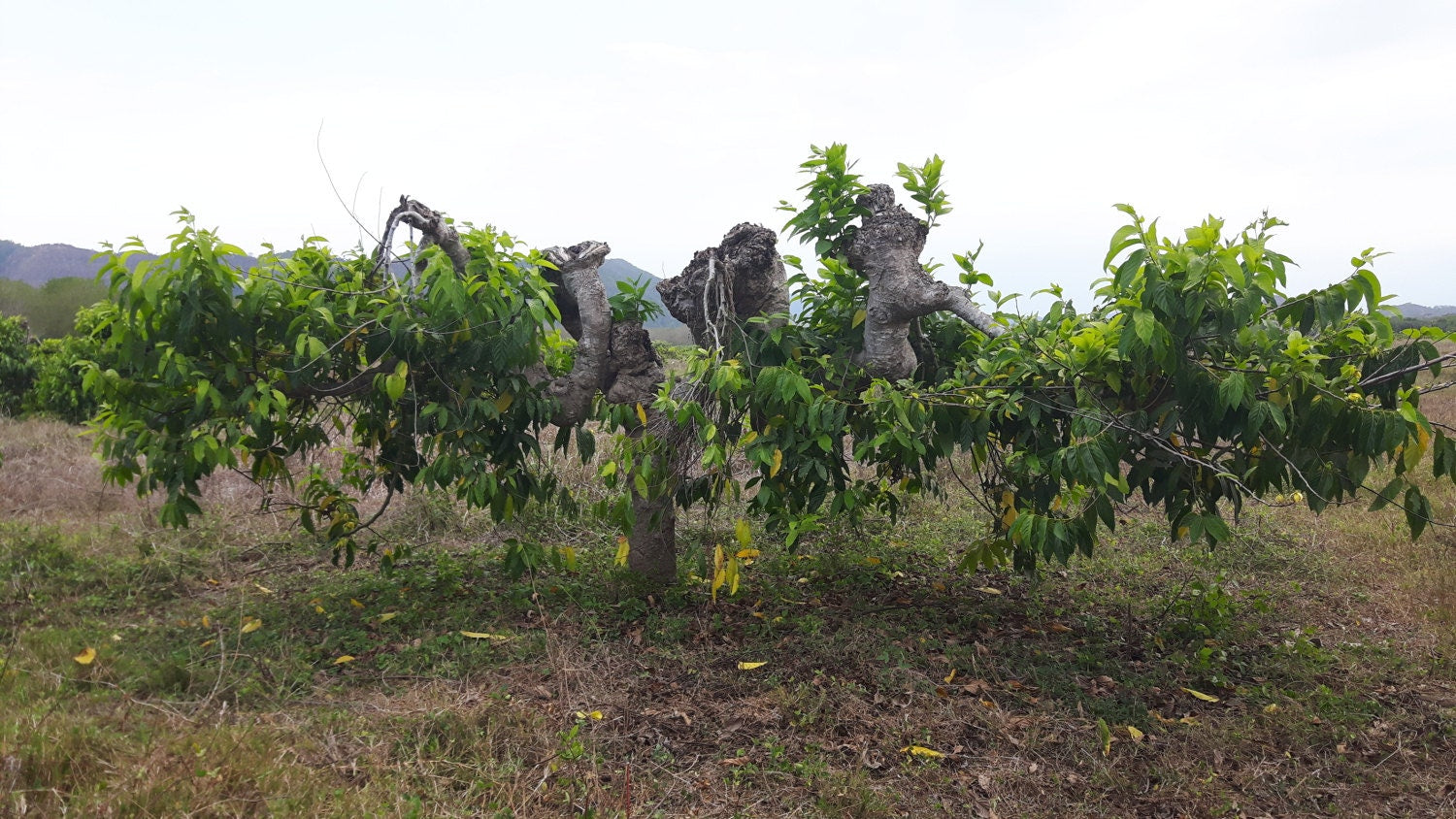
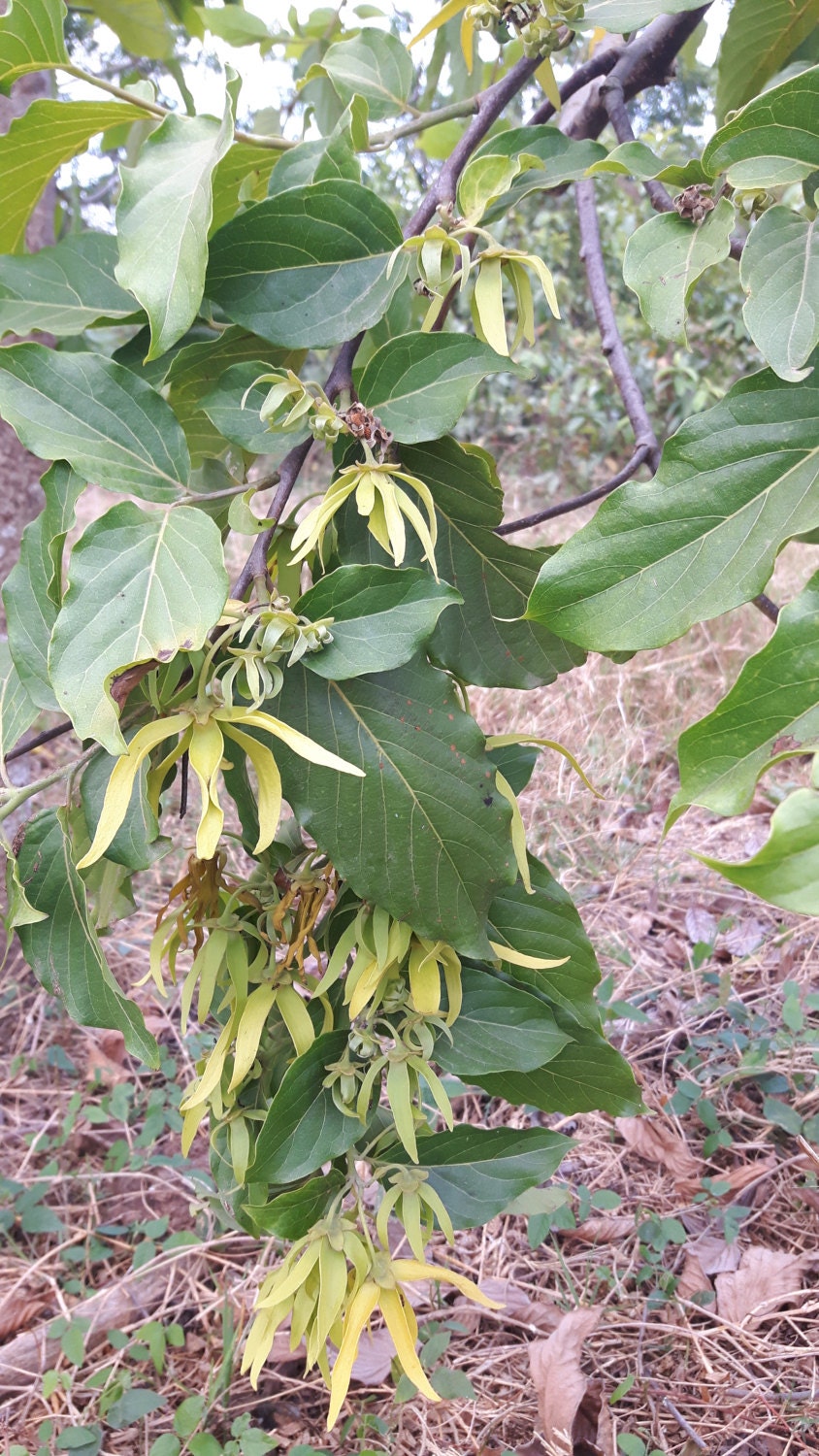
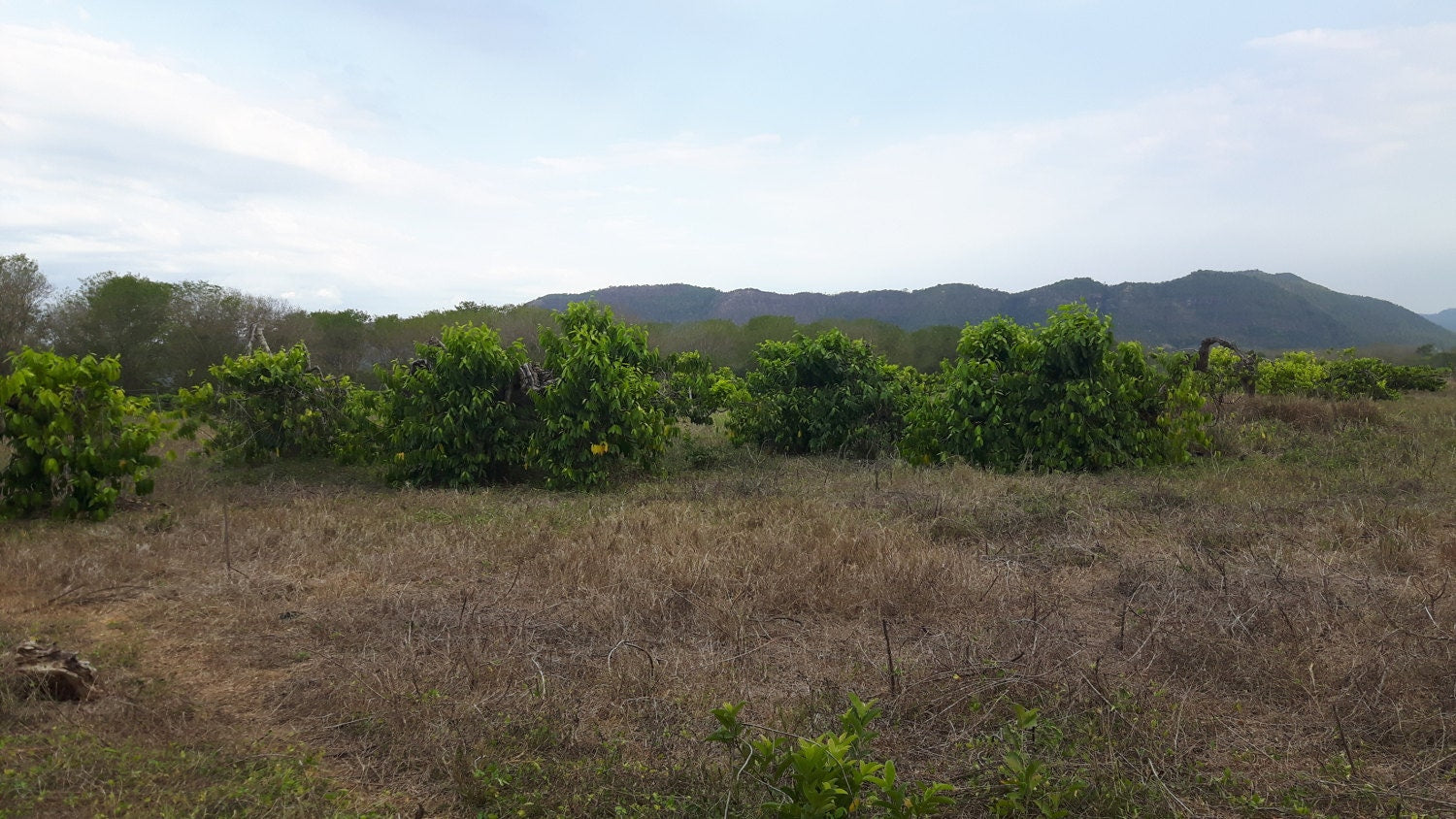
Ylang Ylang Complete essential oil
This Ylang Ylang Complete essential oil is distilled by a local artisan on the tiny island of Nosey Be (pronounced Nosey Bay), north of the Madagascar mainland.
Though I was in Madagascar, the timing was such that I was unable to visit his operation. I did, however, manage to acquire a litre of his Ylang Ylang complete essential oil.
Ylang Ylang Complete essential oil varies from most other Ylang Ylang essential oils on the market since it contains the complete aromatic profile of the local Ylang Ylang flowers. Most often, we will be offered Ylang Ylang "Extra", 1, 2, and Ylang Ylang 3. These are all fractions of the distillation, each separated from the rest consecutively as the distillation progresses. Ylang Ylang Extra is from the first distillate to come over and Ylang Ylang 3 from the last.
Ylang Ylang Complete contains them all and is the collected essential oil produced from one long distillation.
The fragrance of this Ylang Ylang Complete essential oil can be described as heady, sensuous, full-bodied, (and inebriating). It is sweet without being cloying and has soft, honey floral notes woven with caramel and delicate spices. As it dries down, it reminds me of forest moss and fresh ocean breezes.
Many essential oils on the market are manufactured in large distillation plants located in Western countries. The raw materials are often purchased from middlemen at the lowest possible price in poorer, less developed countries, and the profit from processing the aromatic materials is distributed in the developed countries. The harvesters, growers and their communities see very little of the high prices we pay for these products.
Distilling essential oils locally adds value to raw materials and allows more of the money we pay for finished products to stay in the pockets of communities that are often underdeveloped. It assures everyone who contributes to our natural aromatics and medicinals can get a fair share of the money we in the West pay for these valuable products.
In the case of delicate flowers that cannot be grown in developed countries or shipped to foreign distilleries, international concerns will sometimes set up and operate their own distillation facilities and even purchase land, grow the aromatics, and distil them locally. This benefits the local economy to a small degree with employment opportunities but mainly benefits the international corporations, allowing them to keep the lion's share of the profits for themselves.
I believe that by supporting these artisans and small-batch local distillers, we, as consumers, contribute one more small piece towards a picture of international fair trade, care, and respect, both for the land and the communities that look to it for sustenance. Not only does this keep more of the profit in their communities, but artisan distillers are often more focused on quality and not quantity as in industrial distillation plants.
The social movement of buying local and supporting artisans and small businesses is slowly replacing our reliance on faceless corporations that bear no social or environmental responsibility and focus exclusively on their profit margin.
I would also mention even though artisan distillers can not often afford laboratory screenings for their small batch essential oils, they are also not in the position to adulterate their products with cheaper aroma chemicals. One more reason dealing directly with artisan distillers allows us greater assurances of quality.
Materials: Ylang Ylang Complete essential oil, Essential Oil.
